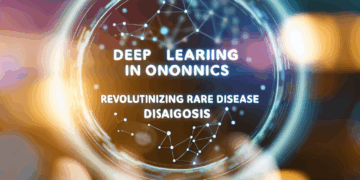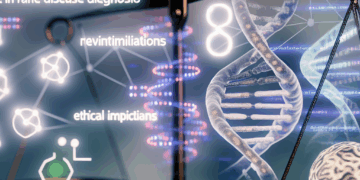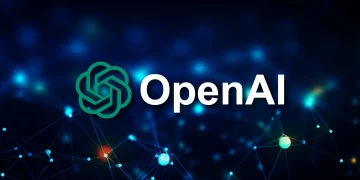Artificial Intelligence (AI) is no longer just a buzzword – it’s the engine behind the most transformative changes in how we live, work, and create. Whether you’re just starting your AI learning path, exploring AI for beginners, or seeking the best AI tools to boost your productivity, understanding how to use AI effectively has become a critical skill in 2025.

From generative AI like ChatGPT to smart automation tools that reshape business workflows, AI is deeply embedded in our daily lives. It’s powering everything from personal productivity apps to enterprise solutions across industries.
In this guide, you’ll learn how to use AI effectively, explore real-world AI use cases, discover step-by-step AI tutorials, and compare powerful tools for content creation, design, coding, and more. Whether you’re a student, entrepreneur, or business leader, this content will equip you with practical insights — all backed by expert knowledge, trustworthy sources, and real-world experience.
So if you’re ready to unlock the future, start here. Because in 2025, AI isn’t optional — it’s essential.
What Is AI? Explained for Beginners (2025 Guide)

What Does AI Mean in Simple Terms?
Artificial Intelligence (AI) refers to the ability of machines to perform tasks that normally require human intelligence. These tasks include recognizing speech, understanding natural language, making decisions, solving problems, and even generating content—commonly known as generative AI.
For beginners, think of AI as a smart assistant that can learn from data, adapt to your needs, and help automate both simple and complex tasks in daily life or business settings.
Types of AI: Narrow AI vs. General AI

AI is not a single technology but a spectrum. The two most discussed types are:
Narrow AI (Weak AI): This is AI designed for a specific task—like spam filters, voice assistants, or product recommendations. Almost all AI tools available today fall under this category. They’re powerful but limited to their predefined functions.
General AI (Strong AI): A more advanced concept, this refers to AI with human-like intelligence, capable of performing any cognitive task. As of 2025, General AI is still under development and theoretical.

Understanding these types helps beginners choose the best AI tools based on real-world capabilities—not science fiction.
What’s the Difference Between AI, Machine Learning & Deep Learning?
Let’s break it down simply:
| Concept | Definition |
|---|---|
| AI | The broad science of making machines intelligent. |
| Machine Learning (ML) | A subset of AI where machines learn from data without being explicitly programmed. |
| Deep Learning | A further subset of ML using neural networks to simulate human brain patterns—great for tasks like image or voice recognition. |

Example Use Case:
Using AI in business: Automating customer service.
Using ML: Training a model to predict customer churn.
Using Deep Learning: Analyzing voice tone in real-time calls.
Why 2025 Is a Turning Point for AI
As we step deeper into 2025, Artificial Intelligence (AI) continues to evolve at lightning speed. Whether you’re just starting your AI learning path or you’re a tech-savvy entrepreneur, staying ahead of the latest AI trends is essential. From the rise of generative AI tools to growing concerns about AI regulation and ethics, here are the top developments you need to know.
This guide is written for AI beginners and business decision-makers who want to understand how AI is changing daily life, creative industries, and business operations.

Trend #1: The Rise of Generative AI Tools
2025 marks the golden era of Generative AI. Tools like ChatGPT, Gemini (Google), Claude (Anthropic), and Midjourney are revolutionizing how we create content, images, music, and even code.

What Is Generative AI?
It’s a type of AI that can create new data—text, visuals, audio—based on what it has learned from existing datasets.Use Cases:
Content marketing automation
Video creation
Personalized customer support
Brainstorming and ideation

Best AI tools in 2025 now come equipped with prompt engineering features, allowing users to guide the AI’s behavior more effectively. For AI for beginners, this opens the door to creative possibilities without needing to code.
Trend #2: AI Regulations & Ethical Use — Why This Isn’t Optional Anymore
AI is no longer the wild west. As tools become more powerful and easier to access, governments aren’t just watching—they’re acting.
Here’s what’s unfolding:
The EU’s AI Act is setting the gold standard for global AI regulation. Expect risk-based classification and real consequences for misuse.
The U.S. is moving fast with frameworks around responsible AI — especially in high-impact areas like healthcare and finance.
Across the board, we’re seeing increased pressure for AI transparency — particularly in hiring, credit scoring, and health decisions.

But here’s what most people miss:
Regulations aren’t just red tape. They’re a roadmap for building AI that people actually trust.
What You Need to Be Thinking About
Whether you’re an entrepreneur testing ChatGPT prompts or a small business deploying CRM automation, you’re already part of the AI ecosystem. That comes with responsibilities:

Data privacy isn’t a checkbox — it’s foundational trust.
Algorithmic bias isn’t theoretical — it’s your reputation on the line.
Automation without empathy can alienate customers — and employees.
Real Talk: Use AI Ethically or Risk Falling Behind

Ethical AI isn’t just about compliance. It’s about building systems that are fair, explainable, and sustainable — the kind of systems your customers (and Google) will trust.
So ask yourself:
Are you using AI effectively, transparently, and with integrity?
Because in 2025, that’s not just a nice-to-have — it’s your competitive edge.
Trend #3: AI in Business — From “Nice-to-Have” to Strategic Advantage

Let’s be clear: The debate is over. In 2025, AI isn’t just a tech upgrade — it’s a strategic necessity.
Across Southeast Asia and beyond, businesses aren’t asking “Should we use AI?” anymore. They’re asking:
“How can we use it smarter, faster, and more profitably than our competitors?”
Real-World Use Cases That Matter
The most competitive businesses are embedding AI deep into their workflows — not just using it as surface-level automation. Here’s what that looks like:
Customer Service: AI chatbots are cutting response times from hours to seconds — 24/7.
Sales: Predictive analytics are forecasting buyer behavior before humans can.
Marketing: Behavioral data is driving hyper-personalized campaigns that actually convert.
HR: Smart recruitment tools are scanning resumes and matching cultural fit in minutes, not weeks.
Finance & Ops: From invoice categorization to supply chain optimization — AI is reducing friction everywhere.
And this isn’t just for the big guys. SMEs are leading the charge, thanks to more accessible tools and integrations.
Tools Are Plentiful — Strategy Isn’t
The good news? There’s a flood of AI tools available today — and platforms that compare features, pricing, and reviews across use cases.
The bad news? Without a strategy, even the best tool can feel like noise.
That’s where experience and expert insight come in. Knowing what to automate, when to trust data, and how to scale — that’s your edge.
What Smart Businesses Are Doing Now
They audit workflows to see where AI delivers the biggest ROI.
They choose tools based on cross-department value, not just shiny features.
They don’t chase trends — they build systems that evolve with their business.
AI is no longer a shortcut. It’s your new operating system.
Trend #4: Creativity, Rewired — How AI Is Changing the Game for Artists & Creators

Forget the myth: AI isn’t replacing creatives — it’s redefining creativity.
In 2025, from Hanoi to Manila, the most boundary-pushing art and content isn’t made despite AI — it’s made with it.
The future of creativity isn’t about man vs. machine. It’s about man + machine.
How the Creative Workflow Is Evolving
AI is no longer a backstage assistant. It’s now a collaborator, co-creator, and accelerator:
Writers are using AI for ideation, outlines, and even rough drafts — freeing up time for voice and depth.
Designers are tapping AI image generators to visualize faster, prototype quicker, and iterate more.
Musicians are blending AI-generated hooks with human emotion to build tracks that hit differently.
Influencers & content creators are deploying AI avatars, voice clones, and video generation to scale themselves — without burning out.
No Code, No Problem

Think AI is only for coders? Not anymore.
With the rise of no-code tools, drag-and-drop interfaces, and tutorials built for total beginners, even traditional artists are now able to:
Brainstorm with AI
Produce album art with Midjourney
Generate video scripts and edit reels in minutes
Explore entirely new mediums, like interactive storytelling or AR-based music videos
Here’s the Truth
If you’re a creative in 2025 and not using AI, you’re leaving potential on the table — creatively and commercially.
The best creators aren’t asking if AI will replace them.
They’re asking:
How do I use AI to create what I couldn’t before?
The Best AI Tools You Should Know (Updated 2025)
In 2025, AI is transforming how we live, work, and create—and knowing the best AI tools is essential for beginners and professionals alike. Whether you’re exploring AI for beginners, seeking tools to boost productivity, or diving into generative AI for content creation, this updated guide highlights the most powerful, user-friendly platforms available today.
AI Assistants & Chatbots
ChatGPT (OpenAI): The most popular and versatile AI assistant, now with GPT-4o, offering multimodal capabilities (text, images, audio, video), advanced memory, and integration with search for grounded, up-to-date answers. Ideal for writing, research, brainstorming, coding, translation, and more. Over 546 million monthly active users in 2025 (The 55 Best AI Tools for 2025 (Tried and Tested)).

Claude (Anthropic): Known for its strong reasoning, coding, and large context window. A favorite for technical and creative writing (43 Best AI tools for business and productivity in 2025).

Gemini (Google): Deeply integrated with Google Workspace (Gmail, Docs, Sheets), Gemini excels at multitasking, data extraction, and factual accuracy, making it indispensable for those in the Google ecosystem (43 Best AI tools for business and productivity in 2025 ).

Grok (xAI): A rising competitor with conversational abilities and real-time information access (Most Popular AI Apps Worldwide by Monthly Active Users (April 2025)).

DeepSeek: Specializes in coding, math, and logic-intensive tasks, offering technical and structured responses (The 55 Best AI Tools for 2025 (Tried and Tested)).

Productivity & Automation
Zapier: Automates workflows and connects thousands of apps, streamlining repetitive tasks without coding (The best AI productivity tools in 2025).
Microsoft Copilot: Embedded in Microsoft 365, Copilot assists with data analysis, writing, and email composition directly within familiar apps like Word, Excel, and Outlook (43 Best AI tools for business and productivity in 2025).
n8n: Open-source automation platform for building custom workflows (The 55 Best AI Tools for 2025 (Tried and Tested)).
Content Creation
Video Generation & Editing:
Synthesia: Create AI-powered videos with avatars in multiple languages (The 55 Best AI Tools for 2025 (Tried and Tested)).
Runway, Filmora, OpusClip, HeyGen: Leading tools for video editing, text-to-video, and smart enhancements (The best AI productivity tools in 2025).
Image Generation:
Midjourney, DALL·E 3, Stable Diffusion, Adobe Firefly: Produce high-quality, creative images from text prompts (The best AI productivity tools in 2025).
Writing & Copy:
Rytr, Sudowrite, Jasper, Copy.ai, Writesonic: AI-powered writing assistants for blogs, marketing, and creative content(The 55 Best AI Tools for 2025 (Tried and Tested)).
Grammarly, Wordtune: Enhance grammar, clarity, and tone in your writing (The best AI productivity tools in 2025).
Voice & Music Generation
ElevenLabs: Industry leader in ultra-realistic AI voice synthesis (Our 10 Favorite AI Software Tools 2025).
Murf: Voiceover and narration tool for creators (The 55 Best AI Tools for 2025 (Tried and Tested)).
Suno, Udio: AI music generators for custom tracks and lyrics (The best AI productivity tools in 2025).
Research & Knowledge Management
Perplexity AI: Next-gen AI search engine with smart citations and research-friendly features(The 55 Best AI Tools for 2025 (Tried and Tested)).
NotebookLM, Deep Research: AI-powered research assistants for organizing and summarizing information (The 55 Best AI Tools for 2025 (Tried and Tested)).
Notion AI Q&A, Guru: Knowledge management and internal Q&A (The 55 Best AI Tools for 2025 (Tried and Tested)).
Meetings & Transcription
Fathom, Nyota, Fireflies, Otter.ai, Descript: Transcribe meetings, summarize notes, and automate follow-ups (The 55 Best AI Tools for 2025 (Tried and Tested)).
Design & Social Media
Canva Magic Studio, Looka: AI-powered design tools for graphics, branding, and presentations (The 55 Best AI Tools for 2025 (Tried and Tested)).
Vista Social, FeedHive, Buffer: Manage and automate social media content and analytics (The best AI productivity tools in 2025).
Coding & Development
GitHub Copilot, Cursor, Bubble, Lovable.dev: AI tools for code suggestions, app building, and automation (Our 10 Favorite AI Software Tools 2025).
Other Notable Tools
Resume Builders: Teal, Kickresume, Enhancv (The best AI productivity tools in 2025).
Email: Hubspot Email Writer, SaneBox, Shortwave (The 55 Best AI Tools for 2025 (Tried and Tested)).
Project Management: Asana, ClickUp (The 55 Best AI Tools for 2025 (Tried and Tested))..
Legal, Sales, Recruitment: Harvey (legal), Regie.ai (sales), Textio (recruitment) (The 55 Best AI Tools for 2025 (Tried and Tested)).
Popularity & Trends
ChatGPT remains the most widely used AI app globally, with over 546 million monthly active users and leading download numbers in 2024 and 2025 Most Popular AI Apps.
Gemini and Microsoft Copilot are rapidly gaining traction, especially among enterprise and productivity-focused users Most Popular AI Apps.
Specialized tools like DeepSeek and Claude are becoming go-to solutions for technical users and developers
Summary Table: Top AI Tools by Category
| Category | Leading Tools (2025) |
|---|---|
| AI Assistant/Chatbot | ChatGPT, Claude, Gemini, Grok, DeepSeek |
| Automation | Zapier, n8n, Microsoft Copilot |
| Video Editing/Generation | Synthesia, Runway, Filmora, OpusClip, HeyGen |
| Image Generation | Midjourney, DALL·E 3, Stable Diffusion, Adobe Firefly |
| Writing/Copy | Rytr, Sudowrite, Jasper, Grammarly, Wordtune |
| Voice/Music Generation | ElevenLabs, Murf, Suno, Udio |
| Search/Research | Perplexity, NotebookLM, Deep Research |
| Meetings/Transcription | Fathom, Nyota, Fireflies, Otter.ai, Descript |
| Social Media | Vista Social, FeedHive, Buffer |
| Coding/Development | GitHub Copilot, Cursor, Bubble, Lovable.dev |
How to Use AI Effectively (With Real-World Examples)

In 2025, using AI effectively isn’t just about choosing the right tool—it’s about mastering how to guide it. Whether you’re new to AI for beginners or exploring ways to improve productivity, this guide will show you exactly how to get high-quality results with the best AI tools available.
From prompt engineering techniques to full workflow automation, we’ll break down practical strategies that real users apply daily—plus common mistakes to avoid when working with generative AI. You’ll also get a behind-the-scenes look at how we built an entire blog workflow using AI tools—from ideation to publishing.
Perfect for those on the AI learning path, this article offers clear, step-by-step insights, real-world AI use cases, and smart comparisons to help you use AI for business, creativity, or daily life—more confidently and productively than ever. Here’s how to use AI effectively, illustrated with practical, real-world examples from various industries.
Automate Routine Tasks to Boost Productivity
Business Operations: Companies like UiPath use AI-driven bots to automate repetitive tasks such as data entry and invoice processing, freeing up staff for higher-value work and improving productivity.
Employee Support: Uber deploys AI agents to help employees be more productive and save time, while ATB Financial uses Google Workspace with Gemini to automate routine tasks and streamline collaboration for over 5,000 team members
Enhance Customer Experience and Personalization
Retail: Amazon’s AI-powered recommendation engine analyzes customer behavior to suggest products, increasing sales and customer satisfaction Walmart uses AI to optimize inventory and improve in-store customer service through predictive analytics and robots
Entertainment: Netflix leverages AI to recommend shows and movies tailored to each user’s viewing habits, boosting engagement and retention.
Enhance Customer Experience and Personalization
Supply Chain: Blue Yonder uses AI to predict demand and optimize inventory, while DHL leverages AI for route planning and warehouse management, reducing costs and improving delivery accuracy
Market Research: Tools like Crayon and Quid use AI to analyze market trends and customer sentiment, helping businesses stay ahead of competitors
Strengthen Security and Fraud Detection
Finance: American Express and other financial institutions use AI models to detect and prevent fraudulent transactions in real time, minimizing losses and enhancing customer trust.
Security Systems: Hikvision integrates AI into surveillance to identify unusual activities and alert authorities, improving public and private safety
Accelerate Research and Innovation
Healthcare: IBM Watson Health processes vast amounts of medical data to support accurate diagnoses and personalized treatment plans, complementing the expertise of medical professionals.
Drug Discovery: Roche uses AI to analyze medical data and simulate drug interactions, speeding up the development of new treatments and reducing costs.
Scientific Discovery: Google DeepMind’s AlphaFold predicts protein structures, revolutionizing drug discovery and disease research.
Personalize Education and Training
Adaptive Learning: Platforms like Duolingo and Simplilearn use AI to tailor educational content and feedback to individual learners, improving outcomes and engagement
Corporate Training: IBM’s SkillsBuild and Docebo adapt training materials in real time, helping employees upskill efficiently
Optimize Lifestyle and Daily Convenience
Smart Homes: Devices like Nest thermostats learn user preferences and adjust settings for comfort and energy savings
Virtual Assistants: Siri, Alexa, and Google Assistant use AI to manage schedules, answer questions, and control smart devices, making daily tasks easier
Real-World Examples Table
| Use Case | AI Application/Tool | Real-World Example |
|---|---|---|
| Customer Personalization | Recommendation Engines | Amazon, Netflix |
| Fraud Detection | Transaction Analysis | American Express |
| Predictive Maintenance | Sensor Data Analysis | Airbus, General Electric |
| Healthcare Diagnostics | Medical Imaging/Records | IBM Watson Health, Google Health |
| Supply Chain Optimization | Demand Forecasting | Blue Yonder, DHL, IBM Watson |
| Education | Adaptive Learning | Duolingo, Simplilearn |
| Market Research | Sentiment/Trend Analysis | Quid, Crayon |
| Smart Homes | Device Automation | Nest, Alexa, Google Assistant |
Tips for Using AI Effectively
Identify repetitive or data-heavy tasks in your workflow that AI can automate or augment.
Start small with pilot projects to measure impact before scaling AI solutions across your organization.
Leverage AI for insights, not just automation: Use AI analytics to inform decisions, not just to save time.
Combine human expertise with AI: Let AI handle data processing while humans focus on strategic and creative work.
Monitor and refine: Continuously evaluate AI performance and retrain models as needed to maintain accuracy and relevance.
By thoughtfully integrating AI into daily life and business operations, organizations and individuals can unlock significant efficiencies, improve experiences, and drive innovation
How to Use AI Effectively (With Real-World Examples)
Let’s be honest.
AI is everywhere. It’s writing articles, creating images, answering emails—maybe even reading this over your shoulder. But here’s the catch: most people use it like a fancier calculator. And then wonder why the results feel… meh.
If you’re looking to actually use AI effectively (not just copy-paste prompts into ChatGPT and hope for magic), stick around. I’ll walk you through how I built an entire blog workflow with AI, how to write better prompts, what tools I trust, and where most beginners go wrong.
This isn’t just theory—it’s what I do every day.
Start Here: Why Most People Fail with AI
AI isn’t a magic wand. It’s a mirror.
It reflects the clarity of your question, the depth of your knowledge, and the structure of your input. If you’re vague, lazy, or generic—guess what? So is the output.
Think of prompt writing as programming in plain English.
Get specific, give structure, and tell the AI what role to play.
Prompt Writing 101: Getting Quality Output
Here’s the prompt I used that saved me 4 hours on writing a blog intro:
“You’re an SEO expert writing for beginners. Tone: witty but clear. Topic: Best AI Tools 2025. Format: 3-paragraph intro with a CTA. Use focus keyword: AI.”
Result? It needed 5% editing. That’s it.
Prompt Writing Tips:
Role: Who is the AI pretending to be? Expert, copywriter, coach?
Tone: Friendly? Professional? Snarky?
Structure: Listicle, Q&A, essay, tweet thread?
Constraints: Word count, format, keywords?
Real-World Use Case: AI Blog Workflow (That I Actually Use)
I built an entire content machine using:
Notion AI to brainstorm outlines.
ChatGPT for drafting intro + FAQ sections.
SurferSEO to guide keyword density + headings.
Zapier + OpenAI API to auto-write meta descriptions.
Airtable to track performance + revisions.
It’s not just cool—it’s scalable.
I now publish 3x more content with better consistency. This is what AI tools for productivity actually look like in the wild.
Best AI Tools I Recommend (2025 Edition)
| Tool | Use Case | Beginner-Friendly? |
|---|---|---|
| ChatGPT | Writing, coding, ideation | ✅ |
| Gemini | Google-native tasks + research | ✅ |
| Notion AI | Docs, summaries, project planning | ✅ |
| Claude | Long-form, contextual accuracy | ✅ |
| Zapier + AI | Workflow automation | ⚠️ Medium |
Choose tools based on your goals. Use a simple AI tools comparison chart if you’re stuck.
Workflow Automation with AI: A Quick Blueprint
Trigger: New blog idea saved to Notion.
Action 1: AI generates outline.
Action 2: AI writes intro and CTA.
Action 3: API call sends draft to Google Docs.
Action 4: Human edits, SEO plugin checks.
Post. Repeat.
It’s like cloning a content assistant—without the HR paperwork.
Common Mistakes to Avoid

Even pros mess this up. Here’s what you should dodge:
❌ Writing vague prompts: “Write an article about AI” ≠ results
❌ Using only one tool: AI is a toolbox, not a one-trick pony
❌ Expecting perfect output: AI drafts, you shape
❌ Ignoring ethics: Don’t automate empathy. Humans first.
AI Use Cases in Everyday Life & Work
Let’s be real: AI is already in your life — whether you know it or not.
You don’t need a PhD or a job title that ends with “Scientist” to start using AI. In 2025, AI tools have quietly slipped into our calendars, inboxes, creative workspaces, and even parenting routines.
If you’re a beginner wondering how to use AI effectively, or you’re hunting for the best AI tools for daily productivity, you’re in the right place. Let’s break down how AI is reshaping real life and real work — with no hype, just use cases.
1. AI in Marketing: The Age of Creative Automation
Remember when writing social posts, creating graphics, and analyzing campaigns took hours?
Now?
Generative AI like ChatGPT can write A/B tested ad copy in seconds.
Tools like Jasper or Copy.ai create email funnels based on your tone and target.
Canva’s Magic Design? It creates visuals before your coffee brews.
AI for marketers isn’t about replacing creativity — it’s about scaling it.
AI in Education: From Passive to Personalized Learning
No, AI isn’t here to replace teachers — but it is changing how we learn.
AI tutors adapt in real-time to student needs (hello, Khanmigo).
Essay feedback tools like Grammarly or Quillbot help students revise better and faster.
And for self-learners? Entire AI tutorial step-by-step paths are available for free via platforms like Google Learn AI or DeepLearning.AI.
This is education that learns how you learn.
AI in Finance: Smarter Decisions, Faster
If you’re still budgeting with spreadsheets — stop.
Modern personal finance apps use AI in daily life to:
Analyze spending habits
Recommend optimized saving/investing strategies
Detect fraud before you do
On the business side, AI models now assist in:
Credit scoring
Loan predictions
Real-time market risk analysis
Whether you’re buying coffee or building wealth, AI helps you make smarter moves.
4. AI in Healthcare: Early Detection Is Everything
This one’s personal. AI isn’t just optimizing — it’s saving lives.
Machine learning models now detect early signs of cancer from scans before doctors can.
AI chatbots triage symptoms and reduce hospital overload.
Even wearables like Fitbit or Apple Watch use AI to detect anomalies in real time.
Healthcare with AI is more preventative, more personalized, and (potentially) more affordable.
5. AI in Legal, HR & Admin: Automate the Repetitive, Free the Creative
Boring admin tasks?
AI contract review platforms now extract legal clauses in minutes.
HR teams use AI to screen resumes — not to replace humans, but to find better matches faster.
Scheduling interviews? Drafting policies? Generative AI handles the first draft. You tweak the tone.
The result? Less grunt work, more human work.
6. AI for Small Businesses: The Equalizer
You don’t need a 10-person team to run a polished brand anymore.
With AI, one person can:
Run customer service 24/7 via chatbots
Generate blog content and visuals
Analyze customer feedback at scale
Launch ads, test copy, build landing pages – all before lunch
In 2025, AI is the most powerful team member you didn’t have to hire.
7. Future Jobs vs AI: Friend or Foe?
Let’s clear the air. AI will change the job market — but not in the way you fear.
Yes, some repetitive tasks will be automated.
But new roles like “AI Workflow Designer”, “Prompt Engineer”, or “Synthetic Media Manager” are already emerging.
The real threat isn’t AI — it’s ignoring it.
If you learn how to work with AI, you won’t be replaced — you’ll be promoted.
Final Note (Trust-building CTA)
This isn’t some distant future. AI is here — and it’s accessible.
Whether you’re a student, a solo founder, or leading a team, understanding how to use AI effectively gives you a real edge.
You don’t have to become an AI engineer. You just need to start.
Step-by-Step AI Tutorial for Beginners (No Fluff, Just Start)
If you’re wondering where to start with AI—you’re not alone. Between all the buzzwords and billion-dollar launches, it’s easy to feel behind. But here’s the truth: you don’t need a PhD to use AI effectively.
You just need a clear AI learning path, the right mindset, and 15 minutes to read this.
This is your step-by-step AI tutorial for beginners—taught by someone who actually builds with AI. I’ll break down exactly what to do, what tools to use, and what to ignore.
This is how you go from “I’ve never touched AI” to “I just built a chatbot that runs itself.”
Let’s get into it 👇
Step 1: Learn the Basics (But Skip the Theory Overload)
Forget abstract definitions.
Here’s what you need to know:
AI is the simulation of human intelligence using machines.
Machine Learning (ML) = AI that learns from data.
Generative AI = AI that creates stuff (text, images, code, videos).
That’s it. You now understand more than 90% of people.
👉 Use Case: Need content? AI writes it. Need designs? AI draws it. Need automation? AI connects it.
Step 2: Use Your First AI Tool
Pick one tool. Use it. Don’t overthink.
Here are 3 beginner-friendly tools I recommend:
| Tool | What it Does | Why It’s Great for Beginners |
|---|---|---|
| ChatGPT | Answers, writes, brainstorms | Natural language, feels like magic |
| Notion AI | Organizes ideas, writes documents | Built into your notes |
| Gemini | Google-native research + writing | Great if you’re in the Google ecosystem |
👉 Start with a simple task:
Ask: “Write a 3-step summary of how AI works, in casual language.”
Step 3: Build Your First AI Project
Now it’s time to do something.
Pick one small project that fits your interests:
| Project Type | Example Idea | Tools to Use |
|---|---|---|
| Content | AI writes your blog or ad copy | ChatGPT, Jasper |
| Image | AI creates illustrations | Midjourney, DALL·E |
| Chatbot | AI handles FAQs on your site | GPT API, ManyChat |
| Video | AI makes YouTube shorts | Pictory, Synthesia |
Don’t worry about it being perfect. The point is to ship something.
⚠️ Pro Tip: Learn basic prompt engineering:
Instead of: “Make me a blog post.”
Try: “You are an SEO expert. Write a 300-word blog post on ‘AI for beginners’, tone: friendly, include an FAQ.”
That’s when the magic happens.
Step 4: Free Learning Resources to Keep Going
You don’t need a $5,000 bootcamp.
Here’s the no-cost starter kit:
Google’s AI for Beginners (https://ai.google/education/)
OpenAI Cookbook (https://github.com/openai/openai-cookbook)
LearnPrompting.org – Master prompt writing
YouTube Channels: Matt Wolfe, Wes Roth, All About AI
Reddit: r/ArtificialIntelligence, r/ChatGPT
Set aside 30 minutes a day. You’ll be dangerous in 2 weeks.
Final Thoughts: AI is a Skill, Not a Shortcut
Using AI well isn’t about pressing buttons. It’s about knowing what to ask, testing smartly, and improving consistently.
Whether you’re a beginner or building workflows for your business, the truth is the same:
The winners aren’t the people who know about AI.
The winners are the ones who use it, iterate, and ship.
This guide gave you the blueprint. Now it’s your move.
Stay Ahead with Trusted AI Insights
If you’re passionate about Artificial Intelligence, eager to explore the latest AI news, practical how-to tutorials, or in-depth analysis of the best AI tools—you’re in the right place. YourAITips.com is a trusted resource curated by professionals with real-world experience using AI across productivity, content creation, and business automation.
We combine hands-on testing, expert guidance, and ethical practices to help both beginners and experienced users navigate the evolving world of AI confidently.
➡️ Visit YourAITips.com for reliable tips, updates, and step-by-step guides—so you don’t just keep up with AI, you stay ahead.





































